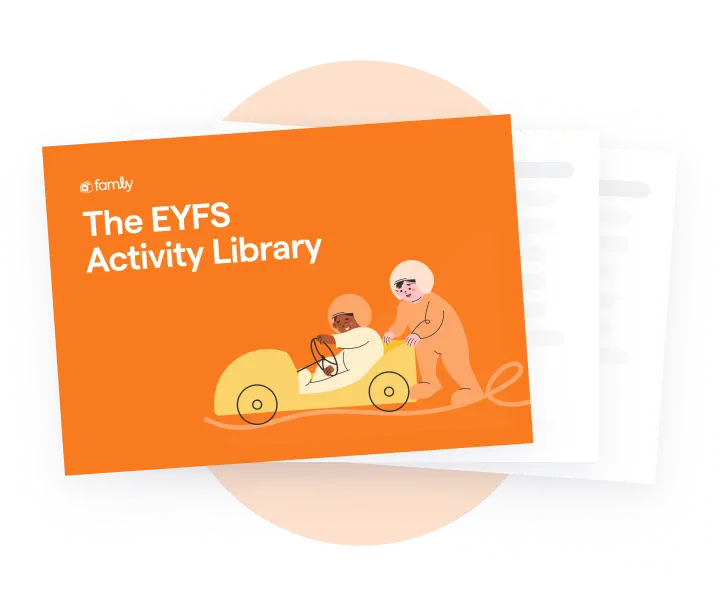settings
children
With Famly since
Research studies show that music-based intervention programmes in the early years can boost children’s neural processing networks. In fact, it has the same effect on the adults taking part.
Yet at the same time as neuroscience and research evidence around the power of music in early education have been growing, music education for our early years educators has declined to the point where it is barely mentioned in professional training qualifications.
But why is this? And how can we reverse this trend and get robust music provision into our early years settings? Let’s take a look.

Neuroscience Evidence
All of the following neural networks are connected to the 3 main cortices of the brain and all are seen to be activated by music practice:
- Super sense network
Making sense of language – the brain processes music using the same neural network as it uses to process language - Reward network
Giving a sense of achievement and motivation, re-enforcing positive learning experiences - Cognitive network
The engine room, figuring out how to do things, the process - Perceptual network
Predicting what comes next - Cognition network
Figuring out what it all means, what we like or do not like - Emotional network
Effecting mood, resilience, emotions and empathy
We are missing out on the potential for closing the school-ready attainment gap through music. The problem is a complete lack of music knowledge, confidence and resources available to early years educators and parents.
Neuroscience evidence and research studies show us that music learning in early years is a powerful tool for co-regulation, sound processing, building strong foundations for school and closing the attainment gap. Plus, music activities boost mental health for all involved and provide inclusive activities for SEN learners.
So how can music help children prepare for school?
Music for school-readiness
Recent reports tell us that too many children arrive at school without the attention span, self-regulation and cognitive foundations required for them to access the curriculum.
However, throwing money at ‘catch up’ projects to target maths and literacy skills and ‘behaviour hubs’ in primary schools can never be as effective for return on investment as investing in strengthening foundations in early years.
These children need emotional regulation, sound processing, and sensory integration skills in place before they can access the curriculum in a school environment. And, evidence shows us that regular music activities for under 5’s, in the setting, in community groups, and in the home, can contribute significantly.
How to navigate the EYFS

Investing in early years
To use the language around national priorities as stated by our politicians, high educational achievement is required in STEM and literacy to fuel a strong growth economy, but if we fail to get it right from the start our children will not reach their potential in these subjects.
Boogie Mites Community Projects CIC are promoting a campaign for investment to upskill our early years educators, parents and carers about the benefits of music group activities, as well as train and equip them with the knowledge, confidence, and resources needed to harness the benefits.
We know that preschool development is a predictor of later life attainment and health - school readiness is not just an early years issue.

What does good music provision look like?
When we talk about music learning in the early years, what kind of provision do we need?
- A rich and varied music provision,
- Active music making
- Playing with rhythms, melodies, pitch, tempo, dynamics, and timbre,
- Patterns and sequencing of sounds and actions.
- A mixture of acapella and recorded music activities
- Activities that are fun and easy to lead and participate in, for all involved.
Boogie Mites have been writing songs, compiling early years and SEND music programmes, doing music workshops, and offering music training for 25 years. Through this, we developed our own framework for effective music-making, The Boogie Mites ABCD methodology.
Our programmes are informed by neuro-musical evidence, research, and feedback from teachers, parents and children. Our music workshops actively engage and enthuse adults and children whilst harnessing developmental school-ready benefits for the children involved.
In fact, Boogie Mites’ Core Music Programmes for early years settings include training videos presented by Neuromusical Researcher, Dr Anita Collins, so that educators understand the powerful potential of regular active music-making to lay strong cognitive foundations ready for learning in the school environment.
So what’s going wrong?
Given the fact we know what good music provision looks like, and the wealth of evidence we have of its value, we have 3 big questions:
- Why is music not treated with any importance in EYFS education?
- Why are trainee teachers and early years educators not given the same in-depth support to teach music, as they are to teach other subjects?
- Why are we not following the evidence?
We need music education from the ground up, starting with practitioners and teachers, so that they are equipped with the knowledge to roll out to parents and teach children effectively. We want tried and tested, evidence-based music resources available for all teachers and families and teacher assessment of sound processing and rhythmic ability to inform additional support required.
Boogie Mites are working with FE colleges, universities, schools and children’s centres from the ground up towards making this change.

Support our campaign for early years music education
Please support our campaign to raise awareness of the potential payback from investment in early years music training and resources. Investing in Early years music training would:
- Upskill the workforce,
- Support parents and carers,
- Improve child development outcomes,
- Help to close the school-ready attainment gap, leading to improved education outcomes throughout school and life.
But we don’t just want to raise awareness, let’s take action! You can join our ABCD Music Methodology Facebook group, and promote, prioritise, and invest in music training and resources for early educator teams and families. Remember it is as uplifting for the adults involved as the children!
The big ideas
A discount for Famly customers
Boogie Mites are happy to partner with Famly and to offer Famly customers a 25% discount on our core music programme digital packs. Head over to the Famly Perks section to find a link to claim this discount and contact us regarding onsite launch training.
We have also partnered with Famly to create a parent education and resources sharing package, which has been recently trialled by Kindred Nursery group:
“Boogie Mites responded to Kindred Nurseries request to find an easy way to share music education tips and resources with parents by partnering with our nursery management software providers, Famly.
We received sample resources that included videos, notes for home use, linked and extension activities, plus links to EYFS development to review. They even included posts for the parent news feed that would signpost them to the song/music activity of the week. They were very high quality, and we were happy to roll them out via our Famly platform for a trial in the Spring term.
Feedback has been excellent, with parents commenting on how much the music is enjoyed at home and practitioners commenting on how the resources provide them with additional, close to hand, training tips and ideas too. We highly recommend Boogie Mites music programmes and parent involvement package.”
Sarah Fromageot, Kindred Nursery Group June 2023

You can reach Sue at sue@boogiemites.co.uk, or visit www.boogiemites.co.uk, for more information.
Try learning journals for free
Add observations, and build digital learning journals to share with families instantly. All with your completely free 14-day trial.
Get started









